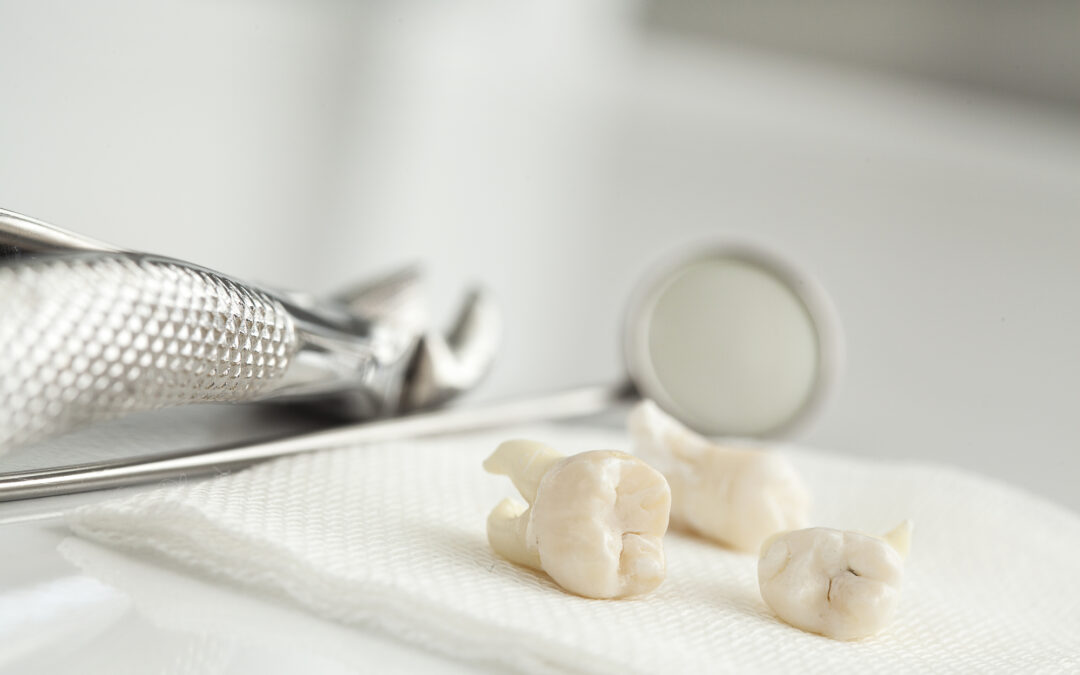WHAT IS A WISDOM TOOTH?
Your wisdom teeth erupt during your late teenage years. They are the last teeth to come out so they often have little room to grow. Some wisdom teeth grow out at a wayward angle and tend to push against adjacent teeth. This outward movement can lead to crowding and biting problems. Some, however, remain impacted below the surface of gums. Though they are not visible, their presence can result in severe tooth or jaw pain, tooth decay, infection, and gum disease. If your wisdom teeth are causing you all of the issues mentioned above, then, chances are, your dentist will recommend extraction. Wisdom tooth extraction can stop jaw pain, toothache, and even the need for braces.
IS IT PAINFUL?
Not at all. Because the procedure is done under anesthesia, wisdom tooth extraction is relatively pain-free. Your oral surgeon will offer you a range of safe sedation medication to ensure that you will not experience unease and discomfort during the surgery. You will be given either nitrous oxide, also known as laughing gas, or intravenous sedation to calm you down, followed by the local anesthesia injected into your gums to numb the specific area of the wisdom tooth. The extraction procedure itself is typically a trouble-free experience.
THERE IS NO COMPARISON
The pain experienced during wisdom tooth extractions is nothing compared to the pain experienced during childbirth, specifically vaginal birth. Wisdom tooth extractions are done under sedation and local anesthesia to ensure that you will not feel anxiety or sharp pain when the surgeon creates an incision to expose the tooth then loosens and lifts the molar out of its socket. You also don’t feel the stitching done after the tooth is pulled out. This is quite different from childbirth where the pain comes in stages. During the early stages of labor, you will have contractions that increasingly become steady and more frequent. These feel like intense menstrual cramps and come with persistent backache and pressure in the pelvic area. And when you’re fully dilated and the baby is ready to come out, there is increased pressure on your bladder and, sometimes, your bowels. But the hardest part is really pushing the baby out of your body, as it mimics the sensation of pooping with unexplainable intensity and force.
Once the baby is out, that’s not yet the end of it. You will still experience sharp pains from the vaginal tearing that most likely happened if you did not give consent to an episiotomy, a cut in the space between the vagina and the anus that enlarges the opening of the vagina and helps the baby come through. Additionally, there’s fatigue from all that pushing and possibly even some side effects from medications given during childbirth.
A woman goes through bodily pains that are seemingly unlimited. While pregnant the mother already experiences bone mass deterioration, apart from all the other drastic changes her body goes through during pregnancy. Then there’s excruciating vaginal birth, exhausting breast milk expression or breastfeeding, and, of course, the tiring task of rearing children. Later in life, a postmenopausal woman also runs the risk of developing more health issues like osteoarthritis and osteoporosis.
CONCLUSION
Asking this question is like comparing apples with oranges. Wisdom tooth extraction can be done with minimal discomfort and zero pain, but the same cannot be said for childbirth. Even those who go through a cesarean delivery will inevitably experience contractions. There’s no escape.

